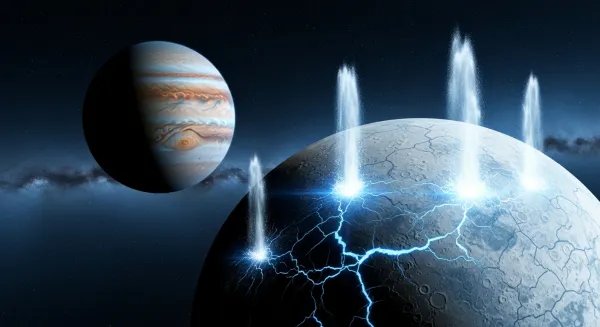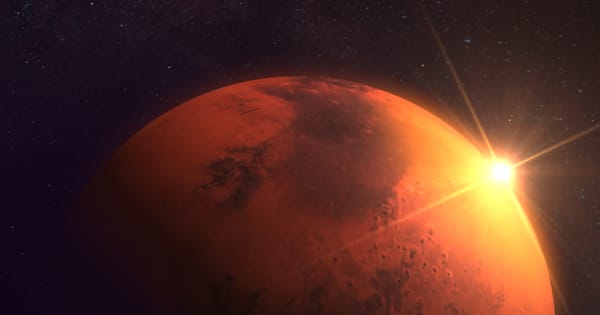There is a plethora of evidence that suggests that we are not alone in the universe.
The number of galaxies in the observable universe is staggering. There are an estimated 2 trillion galaxies in our observable universe and each galaxy contains billions of stars and, therefore, planets.
There may be a chance that there are more planets than stars.
Scientists estimate that on average there’s one planet for every star in our galaxy! That would mean there are about 100 billion planets orbiting stars just in our galaxy alone! And even if this is not true, at least 20% of those planets will have liquid water on them, which scientists find to be essential for life.
The Drake Equation
The Drake Equation is a hypothesis about the number of intelligent civilizations in our galaxy that we can communicate with. It is also a way of calculating how many civilizations we can communicate with.
Drake's Equation is a way to estimate the number of extraterrestrial civilizations in our galaxy. This model is based on Frank Drake's work on SETI in 1961 and aims to estimate the probability that there is at least one detectable civilization among the tens of thousands of civilizations throughout history which have developed radio technology.
The equation is: N = R* x fp x ne x fl x fi x fc x L
Where: N = Number of detectable intelligent societies R* = Rate of formation of stars suitable for intelligent life fp = Fraction with planets
When Are We Likely To Find Extraterrestrial Life? What components are Essential for Life?
The question of finding extraterrestrial life is the most popular one that has been debated by scientists and science fiction writers.
There are many components necessary for life to exist, but only a few are essential. One such essential component is the presence of water. This is because water is a medium that can facilitate chemical reactions, which in turn produce energy, and without it, there would be no life as we know it. Another important component for life to exist is an energy source like light.
There is a lot of space in the universe, and it is not unreasonable to assume that life could exist on planets outside our solar system.
The sheer number of stars and planets combined with the vastness of time leaves open the possibility that life has already evolved elsewhere.
Information from recent spacecraft missions suggests that there are conditions that could allow for life to exist on some planets.
A Few Ways Humans Look For Alien Life In Outer Space What Happens If There Is Life?
Scientists have been looking for life in outer space since the 1950s. There are many ways that they do this such as searching for atmospheric gases (such as methane or water), listening and looking for habitable worlds, and trying to detect extraterrestrial signals.
One of the problems with finding life on other planets is that it could be very different from Earth's life. For example, if an organism needs a lot of heat then that would make it hard to find because Earth-based instruments would not be able to pick up its signs.
In the next few decades, humans will be searching for life on other planets. It's a long shot, but if we found something, our lives would change forever.
The possibility of finding life in outer space has always fascinated humanity. If there was intelligent life out there, it would be a turning point in the history of Earth.
What If There's No Extraterrestrial life Out There?
The Drake equation solves the problem of estimating how many potential extraterrestrial civilizations exist. It's a mathematical equation that calculates the number of intelligent, communicating civilizations in our galaxy by estimating variables such as the rate at which stars develop planets and how many of those planets might develop life, go on to develop intelligent life and then communicate with others.
While the Fermi Paradox ponders around the idea that — if intelligent life is so common in the universe, why haven't we been visited? It doesn't seem to make sense that there would be any other civilizations out there that are still undiscovered.
The most popular and logical theory is that the development of intelligent life is not a given and maybe it's a very unlikely event for any civilization to have survived long enough to reach our level of intelligence.
But,
What if there are no intelligent beings out there?
From a statistical perspective, we can't rule out that possibility. But it shouldn't discourage us from searching for answers. We may not find what we're looking for right away but we may find it further down the line or through some other means.
Conclusion: Humanity Needs to Get Past Its Paranoid Nature about Extraterrestrial life
The concept of alien life is still a mystery to us and we are constantly looking for ways to find out more about it. The universe is a pretty big place and, inevitably, we will eventually bump into other life forms. It's just a matter of time.
I believe humanity has to get past its paranoia about extraterrestrial life and prepare for the day when it finally does occur.
The question is not "will we ever find extraterrestrial life?" but "when!"






